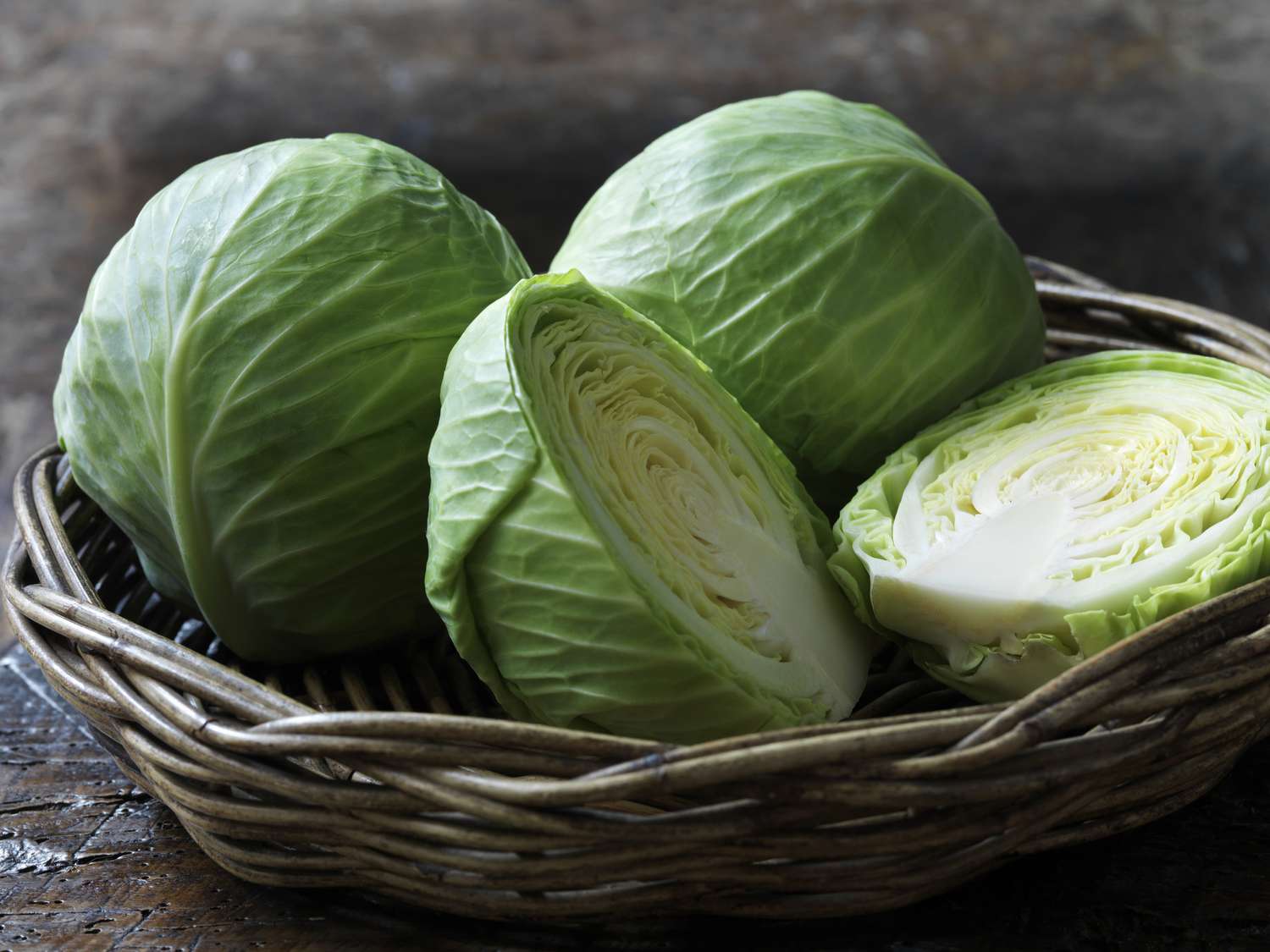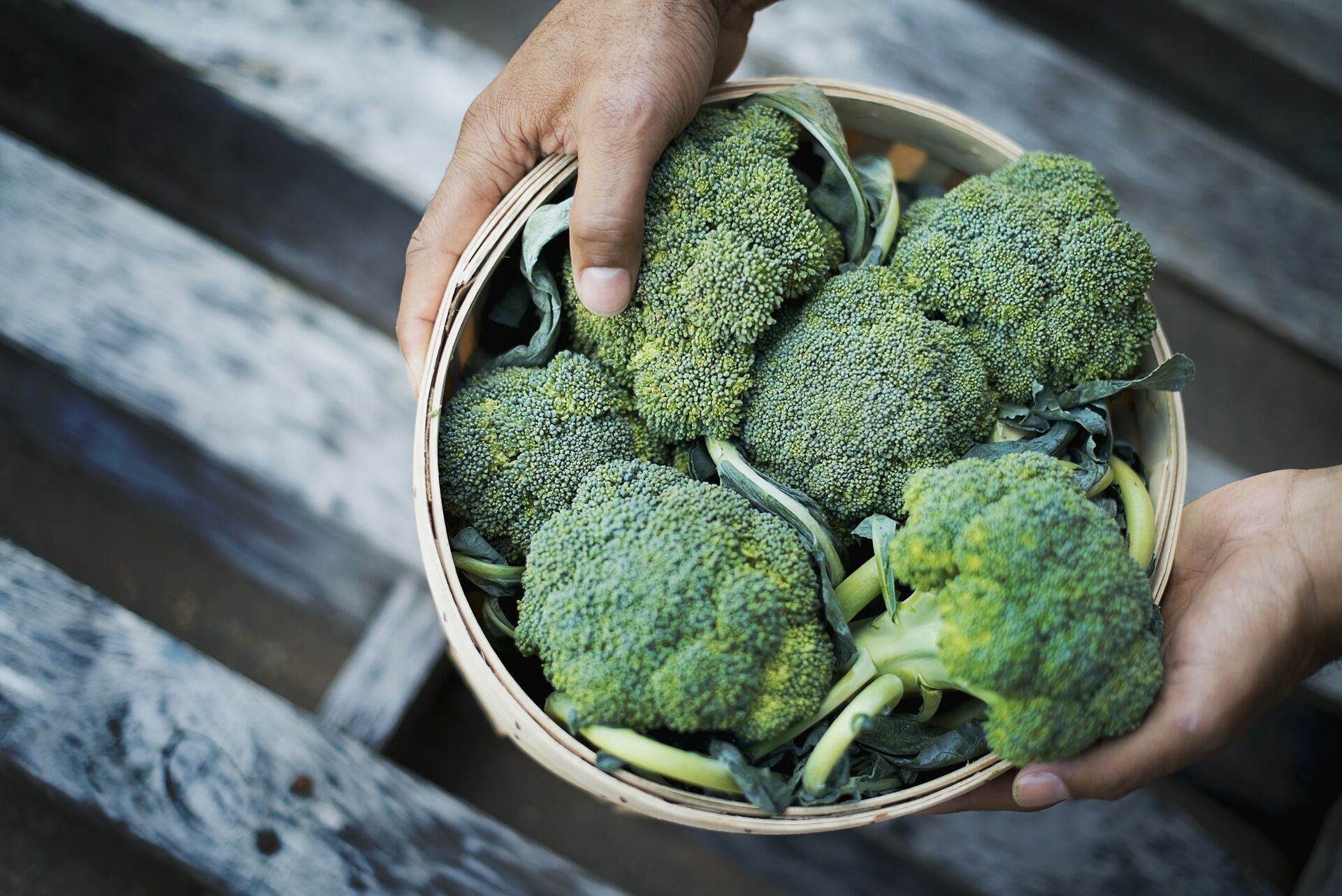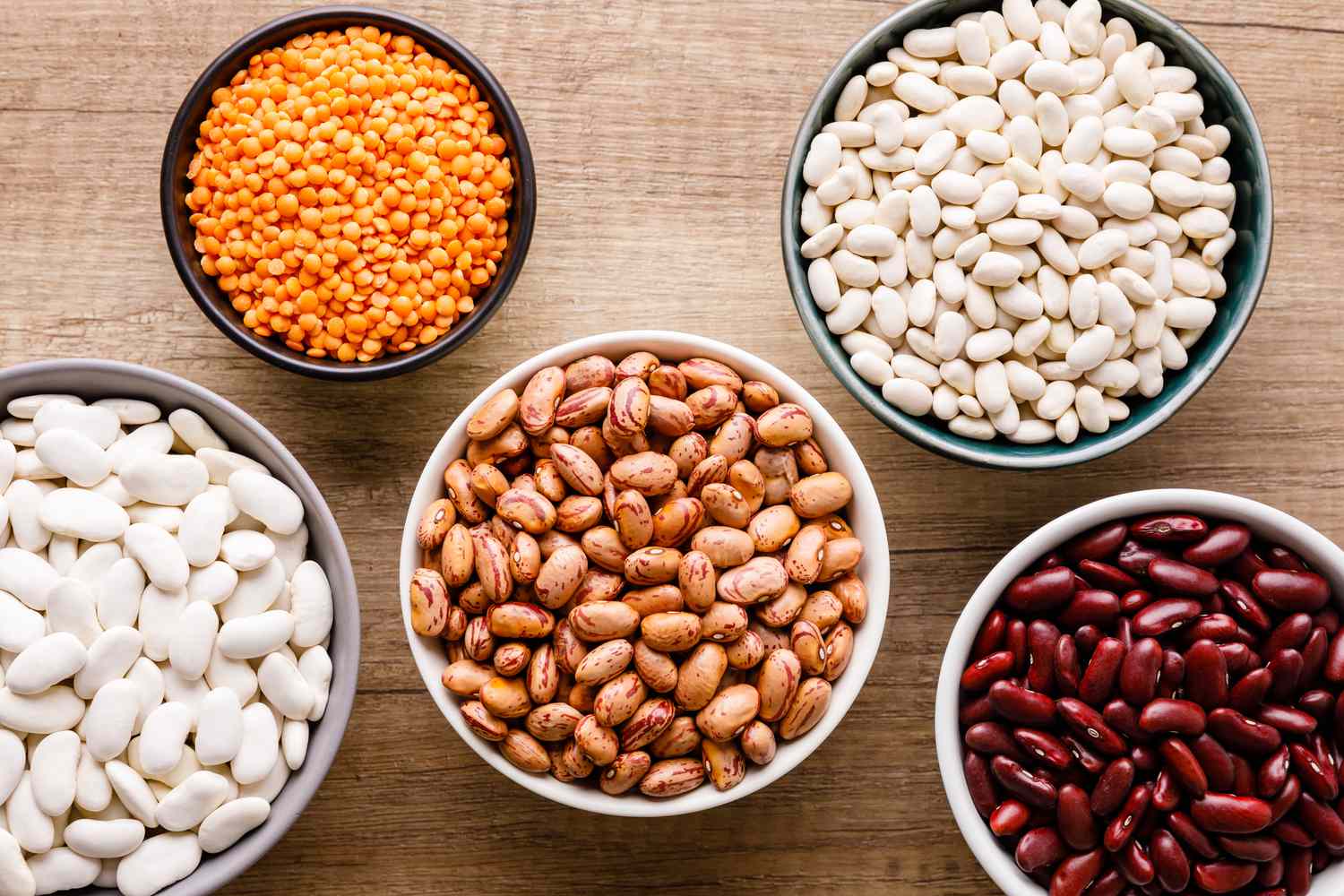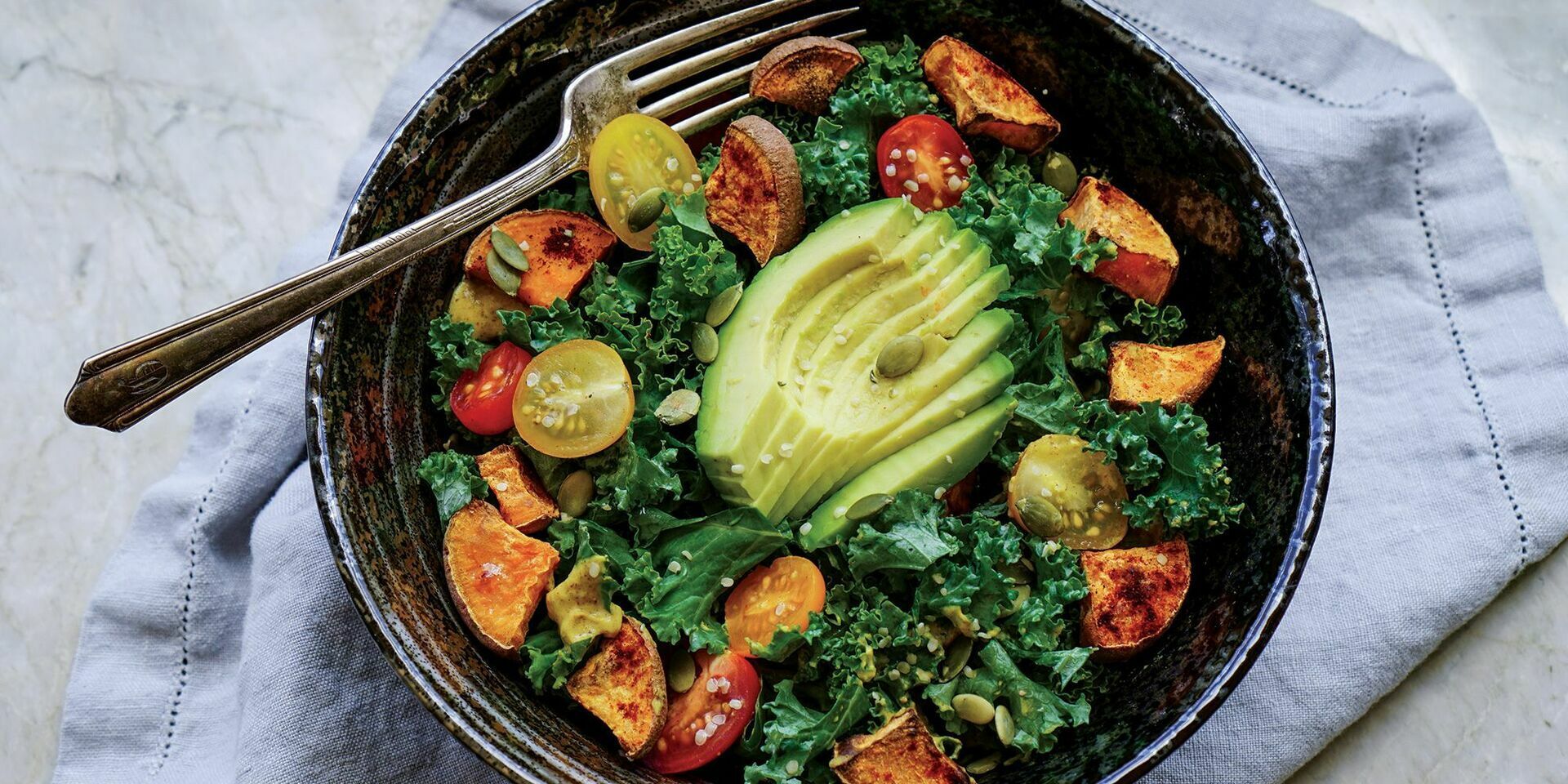

FAQs
Why Cabbage Makes You Fart
Published: July 31, 2023
Learn why cabbage makes you fart and get answers to other general questions about this healthy vegetable.
(Many of the links in this article redirect to a specific reviewed product. Your purchase of these products through affiliate links helps to generate commission for Under-tec.com, at no extra cost. Learn more)
Table of Contents
Introduction
Have you ever wondered why cabbage makes you fart? That’s right, this humble vegetable, often used in salads and stews, has a reputation for causing flatulence in many people. While it may not be the most appetizing topic, understanding the reasons behind this phenomenon can help you make informed choices about your diet and alleviate any discomfort that may arise.
Flatulence, or commonly known as gas, is the result of air accumulating in the digestive system. It can lead to bloating, discomfort, and, of course, passing gas. While it is a natural bodily function, excessive gas can be embarrassing and uncomfortable, causing many individuals to seek ways to reduce it.
One of the main culprits for causing flatulence is the consumption of certain foods. Cabbage, in particular, has gained a reputation for its gas-producing effects. However, before swearing off this vegetable altogether, let’s delve into the nutritional composition of cabbage and how it interacts with our digestive system.
Cabbage is a cruciferous vegetable that is packed with essential nutrients like vitamins C and K, dietary fiber, and antioxidants. It is low in calories and high in water content, making it a popular choice for those aiming to maintain a healthy weight or improve their overall well-being.
However, what sets cabbage apart from other vegetables is its sulfur-containing compounds, known as glucosinolates. These compounds are responsible for giving cabbage its pungent odor and taste. While they have various health benefits, like reducing inflammation and preventing chronic diseases, they also contribute to the production of gas in the digestive system.
When we consume cabbage, the glucosinolates break down and release sulfur compounds. These compounds then travel through the digestive tract, where they can be fermented by gut bacteria. This fermentation process produces gases like hydrogen, methane, and carbon dioxide, which can lead to bloating and flatulence.
In addition to the sulfur compounds, cabbage is also rich in dietary fiber, another factor that can contribute to gas formation. Fiber is an essential component of a healthy diet as it aids in digestion and promotes regular bowel movements. However, when consumed in large quantities, it can cause increased gas production.
So, if you’ve ever wondered why cabbage makes you fart, it’s likely due to a combination of sulfur compounds and the high fiber content present in this nutritious vegetable. But before you give up on cabbage altogether, it’s important to note that it offers a range of health benefits that shouldn’t be overlooked.
What Causes Flatulence?
Flatulence, or gas, is a normal bodily function that occurs as a result of the digestive process. When we eat or drink, we also swallow air, which can accumulate in the digestive system and lead to the formation of gas. Additionally, the breakdown of certain foods in the gastrointestinal tract can produce gases as a byproduct.
Several factors contribute to the formation of gas in the digestive system, including:
- Diet: The foods we consume play a significant role in gas formation. Certain carbohydrates, such as those found in beans, lentils, broccoli, and cabbage, are notorious for causing flatulence. These carbohydrates are not completely broken down in the small intestine and reach the large intestine undigested, where they are fermented by gut bacteria, resulting in the production of gases.
- Swallowing Air: As mentioned earlier, we unintentionally swallow air when we eat, drink, chew gum, or even talk while eating. This can contribute to the accumulation of gas in the digestive system.
- Fiber Intake: While fiber is an essential component of a healthy diet, consuming excessive amounts can lead to increased gas production. This is because the bacteria in the large intestine ferment fiber, producing gases as a byproduct.
- Gastrointestinal Disorders: Certain gastrointestinal disorders, such as irritable bowel syndrome (IBS) and inflammatory bowel disease (IBD), can disrupt the normal functioning of the digestive system, leading to excessive gas production.
- Medications: Some medications, such as antibiotics, can alter the balance of bacteria in the digestive system, potentially leading to increased gas production.
It’s important to note that experiencing flatulence is often a normal part of digestion. However, if excessive gas becomes a chronic issue or is accompanied by other symptoms like abdominal pain, bloating, or changes in bowel habits, it’s advisable to consult a healthcare professional to rule out any underlying medical conditions.
While it may not be possible to completely eliminate flatulence, there are measures you can take to minimize its occurrence:
- Identify and avoid trigger foods: Keep a food diary to track which foods tend to cause more gas for you personally, and try to reduce consumption of those foods.
- Eat smaller meals: Consuming smaller portions can aid in better digestion and reduce the likelihood of excessive gas formation.
- Chew food thoroughly: Properly chewing food helps to break it down more effectively before it reaches the digestive system, reducing the workload on your intestines.
- Avoid carbonated beverages: Carbonated drinks can introduce additional gas into your system, leading to increased flatulence.
- Consider digestive aids: Over-the-counter digestive aids, such as enzyme supplements, may help improve digestion and reduce gas formation.
By understanding the factors that contribute to flatulence and making mindful choices regarding your diet and lifestyle, you can reduce discomfort and minimize the impact of excessive gas on your daily life.
Nutritional Composition of Cabbage
Cabbage is not only known for its potential to cause flatulence but also for its impressive nutritional profile. This cruciferous vegetable is a rich source of essential vitamins, minerals, and dietary fiber that contribute to overall health and well-being.
Here’s a breakdown of the key nutrients found in cabbage:
- Vitamin C: Cabbage is abundant in vitamin C, a powerful antioxidant that plays a crucial role in immune function, collagen production, and wound healing. Just a cup of raw cabbage provides over 50% of the recommended daily intake of vitamin C.
- Vitamin K: Another vital nutrient found in cabbage is vitamin K. This vitamin is important for blood clotting and bone health. Consuming a serving of cabbage can provide a significant portion of the recommended daily intake of vitamin K.
- Dietary Fiber: Cabbage is an excellent source of dietary fiber, which is essential for maintaining a healthy digestive system. Fiber aids in regular bowel movements, promotes satiety, and may help lower cholesterol levels. Incorporating cabbage into your meals can contribute to your daily fiber needs.
- Antioxidants: Cabbage contains a variety of antioxidants, such as anthocyanins and flavonoids, which help protect the body against oxidative stress and inflammation. These compounds have been linked to numerous health benefits, including reduced risk of chronic diseases like heart disease and certain types of cancer.
- Minerals: Cabbage is a good source of minerals like potassium, magnesium, and calcium. These minerals are essential for maintaining healthy blood pressure, nerve function, and bone health.
- Low in Calories: Cabbage is a low-calorie vegetable, making it an excellent addition to a weight-conscious diet. It provides a satisfying crunch and fills you up without adding excessive calories.
It’s worth mentioning that the nutritional composition of cabbage can vary slightly depending on the cooking method. Boiling cabbage, for example, may cause some loss of water-soluble nutrients like vitamin C. However, steaming or consuming cabbage raw can help retain its full nutritional value.
Incorporating cabbage into your meals can not only provide essential nutrients but also add variety and flavor to your diet. Whether enjoyed in salads, soups, stir-fries, or even fermented as sauerkraut or kimchi, cabbage offers a versatile and nutritious option for your culinary creations.
Cabbage and Gas Formation
When it comes to cabbage and gas formation, there are a few key factors at play. The sulfur-containing compounds found in cabbage, known as glucosinolates, are responsible for the distinct smell and taste of this vegetable. While glucosinolates offer various health benefits, they can also contribute to the production of gas in the digestive system.
When we consume cabbage, the glucosinolates present in the vegetable break down and release sulfur compounds. These compounds then travel through the digestive tract, reaching the large intestine where they can be fermented by gut bacteria. This fermentation process produces gases like hydrogen, methane, and carbon dioxide, which can lead to bloating and flatulence.
In addition, cabbage is high in dietary fiber, another factor that can contribute to gas formation. Fiber is essential for maintaining a healthy digestive system and promoting regular bowel movements. However, when consumed in large quantities, it can increase gas production. The fiber in cabbage can provide a substrate for bacteria in the gut to ferment, leading to the formation of gas in the process.
It is important to note that individual tolerance to cabbage and its gas-producing effects can vary. Some people may experience minimal gas formation, while others may be more sensitive to the sulfur compounds and fiber content in cabbage, leading to more pronounced gas symptoms.
Cooking methods can also influence the impact of cabbage on gas formation. Boiling cabbage for an extended period can help reduce the concentration of sulfur compounds, potentially minimizing the gas-producing effects. However, it is worth mentioning that prolonged cooking can also lead to the loss of water-soluble nutrients like vitamin C. Steaming or consuming cabbage raw can help retain its nutritional value while still providing the potential benefits of this cruciferous vegetable.
While experiencing gas after consuming cabbage is normal for many individuals, there are steps you can take to minimize the discomfort:
- Portion control: Limit your intake of cabbage to smaller portions to assess your tolerance level and reduce the likelihood of excessive gas formation.
- Combining with other foods: Pair cabbage with other food groups, such as lean proteins or grains, to help balance your meal and potentially lessen the impact on gas formation.
- Cooking methods: Experiment with different cooking methods to find what works best for you. Lightly steaming or stir-frying cabbage may be more tolerable than consuming it raw or heavily boiled.
By being mindful of your cabbage consumption and finding the right balance, you can continue to enjoy the nutritional benefits of this versatile vegetable while minimizing any potential discomfort caused by gas formation.
Fermentation and Cabbage Consumption
When it comes to cabbage consumption, one method that can alter its properties and potentially reduce gas formation is fermentation. Fermented cabbage products like sauerkraut and kimchi have been enjoyed for centuries and offer both unique flavors and potential health benefits.
Fermentation is a natural process that occurs when beneficial bacteria, such as lactobacilli, convert sugars into lactic acid. This process helps preserve the cabbage and enhances its flavor. During fermentation, the bacteria also produce enzymes that break down complex carbohydrates into simpler forms, making them easier to digest.
One advantage of fermented cabbage products like sauerkraut and kimchi is that the fermentation process helps break down some of the complex sugars that can contribute to gas formation. This means that consuming fermented cabbage may result in less gas compared to eating raw or cooked cabbage. The beneficial bacteria present in fermented cabbage products are also thought to support a healthy gut microbiome, which can aid digestion and improve overall gut health.
It’s important to note that people’s tolerance to fermented cabbage products can vary. While some individuals may find them more tolerable on the digestive system, others may still experience gas and bloating. It’s recommended to start with small portions and listen to your body’s response to determine your individual tolerance.
When selecting fermented cabbage products, it’s advisable to choose those made with minimal added sugars and preservatives. Homemade versions or those produced by reputable brands focusing on natural fermentation methods are often the best options. These products are typically found in the refrigerated section of grocery stores or specialty food markets.
Incorporating fermented cabbage into your diet can offer a range of potential benefits. In addition to being a source of probiotics, which support gut health, fermented cabbage is also rich in vitamins, minerals, and antioxidants. These products can add depth of flavor and complexity to various dishes, making them a versatile and nutritious addition to your meals.
Remember, while fermented cabbage products may be more easily digestible and potentially reduce gas formation, moderation is key. As with any dietary change or new food, it’s important to listen to your body’s response and make adjustments based on your individual needs and tolerance levels.
Health Benefits of Cabbage
Beyond its reputation for causing flatulence, cabbage is a nutrient-rich vegetable that offers a host of health benefits. Here are some of the reasons why incorporating cabbage into your diet can be beneficial:
- Rich in Vitamins and Minerals: Cabbage is a good source of essential vitamins and minerals. It contains high levels of vitamin C, which is vital for immune function and collagen synthesis. Additionally, cabbage is a good source of vitamin K, which plays a key role in blood clotting and bone health. It also provides minerals like potassium, magnesium, and calcium, which are important for various bodily functions.
- Antioxidant Properties: Cabbage contains antioxidants that help protect the body against oxidative stress and inflammation. Antioxidants like anthocyanins and flavonoids have been linked to reducing the risk of chronic diseases, such as heart disease and certain types of cancer.
- Digestive Health: The fiber content in cabbage supports digestive health by promoting regular bowel movements and preventing constipation. It also aids in maintaining a healthy gut microbiome, which contributes to overall gut health and may improve digestion.
- Weight Management: Cabbage is low in calories and high in dietary fiber, making it a favorable choice for weight management. The high fiber content helps you feel full and satisfied, reducing the likelihood of overeating and aiding in weight loss or maintenance efforts.
- Heart Health: Cabbage contains compounds that may help lower cholesterol levels, reducing the risk of heart disease. The high potassium content in cabbage also supports heart health by promoting healthy blood pressure levels.
- Anti-inflammatory Effects: Some compounds found in cabbage, such as sulforaphane, have anti-inflammatory properties. These compounds may help reduce inflammation in the body, which is associated with chronic diseases like arthritis and cardiovascular conditions.
- Promotes Hydration: Cabbage has a high water content, contributing to hydration and supporting overall health and well-being.
It’s important to note that the health benefits of cabbage are best obtained through consuming a variety of fruits, vegetables, and whole foods as part of a balanced diet. Including cabbage as a regular component of your meals can provide a range of valuable nutrients that contribute to a healthy lifestyle.
Remember to consult with a healthcare professional or registered dietitian if you have specific dietary concerns or medical conditions before making significant changes to your diet or incorporating large amounts of cabbage.
Ways to Reduce Flatulence from Cabbage
If you enjoy the taste and nutritional benefits of cabbage but want to minimize the associated flatulence, there are several strategies you can try. Here are some ways to reduce gas formation when consuming cabbage:
- Cook Cabbage: Cooking cabbage can help break down some of the sulfur compounds and complex sugars that contribute to gas formation. Lightly steaming or stir-frying cabbage is a great way to retain its nutritional value while potentially reducing the impact on your digestive system.
- Pair Cabbage with Other Foods: Combining cabbage with other foods can help balance your meal and potentially reduce gas formation. For example, pair cabbage with lean proteins like chicken or fish or incorporate it into dishes with grains like quinoa or brown rice. This way, you’re diversifying your meal and offsetting the gas-producing effects of cabbage.
- Start with Smaller Portions: If you’re new to consuming cabbage or tend to be more sensitive to gas formation, start with smaller portions. Gradually increase the amount as your body becomes more accustomed to it, allowing your digestive system to adapt.
- Chew Thoroughly: Properly chewing your food can aid in the digestion process. Take your time when eating cabbage and chew it thoroughly to break it down more effectively before it reaches your digestive system.
- Try Digestive Aids: Over-the-counter digestive aids, such as enzyme supplements, may help improve digestion and reduce gas formation. Consult with a healthcare professional or pharmacist to determine the best option for you.
- Experiment with Fermented Cabbage: Fermented cabbage products like sauerkraut and kimchi undergo a natural fermentation process that can make them more easily digestible. If raw or cooked cabbage tends to cause discomfort, trying small portions of fermented cabbage may be a viable alternative.
It is important to note that every individual’s tolerance to cabbage and its gas-producing effects may vary. Pay attention to your body’s response and make adjustments accordingly. If excessive gas or discomfort persists despite trying various strategies, it may be helpful to consult a healthcare professional for further evaluation.
Remember, while flatulence from cabbage is a common occurrence, it doesn’t negate the nutritional benefits this vegetable offers. Finding the right balance and exploring different ways of consuming cabbage can help you enjoy its goodness while minimizing any potential discomfort.
Conclusion
While cabbage may have a reputation for causing flatulence, understanding the factors behind this phenomenon can help you better manage any discomfort and continue to enjoy the many nutritional benefits this vegetable offers.
Cabbage contains sulfur-containing compounds and dietary fiber, which can contribute to gas formation in the digestive system. However, it is important to note that individual tolerance to cabbage and its gas-producing effects can vary.
There are various strategies you can try to reduce flatulence when consuming cabbage. Cooking cabbage, pairing it with other foods, starting with smaller portions, chewing thoroughly, and experimenting with fermented cabbage products are some options to consider. It’s all about finding what works best for your body and digestion.
Despite its potential gas-forming effects, cabbage is a nutrient-rich vegetable with several health benefits. It provides essential vitamins, minerals, and antioxidants that support immune function, heart health, digestion, and more. Incorporating cabbage into your diet can contribute to a well-rounded and nutritious eating plan.
In conclusion, don’t let the fear of gas deter you from enjoying the many benefits of cabbage. With mindful consumption and exploring different cooking and fermentation methods, you can savor the nutritional goodness of this versatile vegetable while minimizing any potential discomfort. So go ahead, embrace the crunch and add some cabbage to your next meal!










